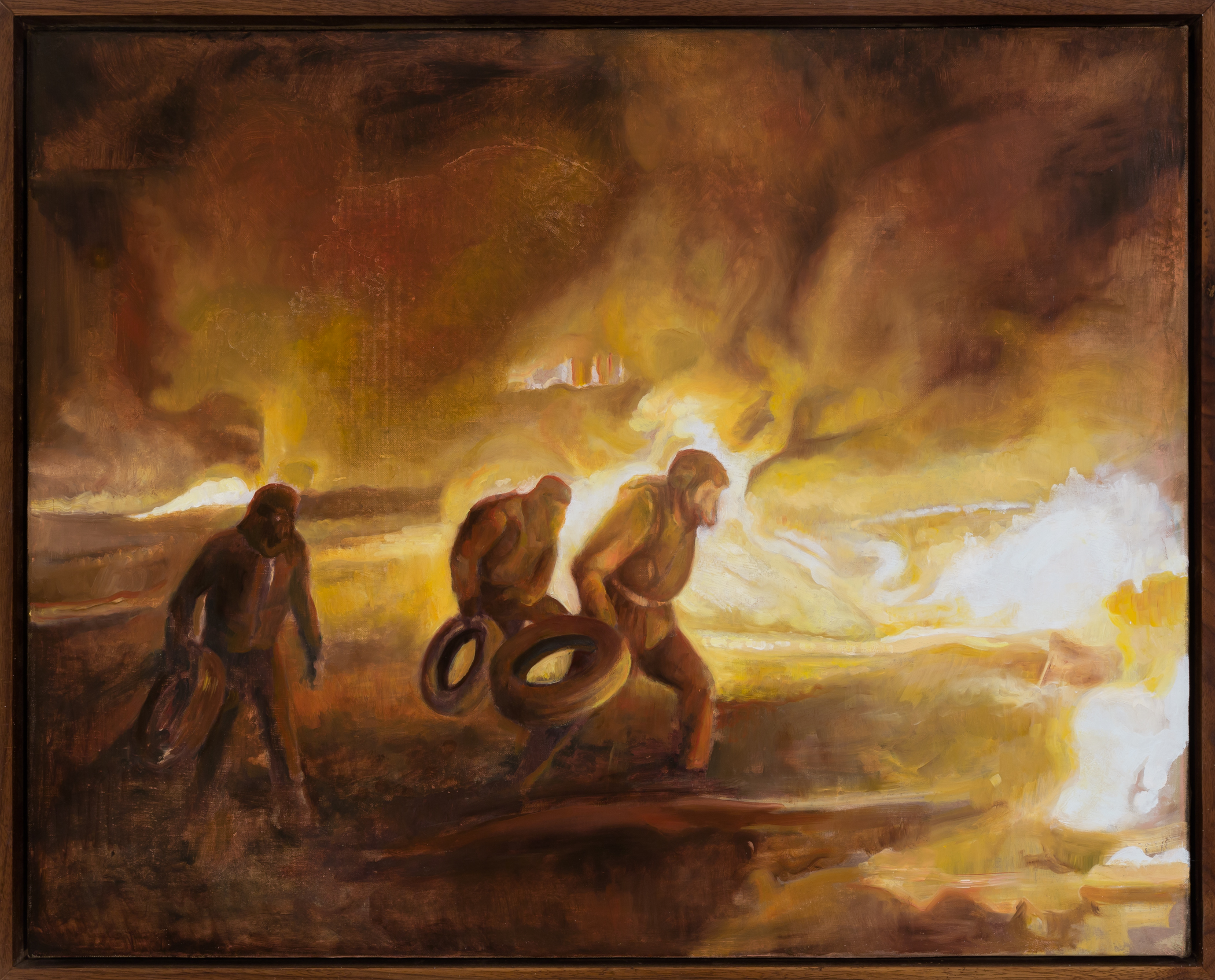David Molesky’s Dramatic New Series of “Riot Paintings”
by Margot Buermann

David Molesky — Fire Feeders, 2014 | oil on linen, 24 x 30 in
New York-based artist David Molesky explores human agency as the driving force behind political protest in his series entitled “Riot Paintings”. In the aftermath of the 2014 Ukrainian revolution, Molesky was inspired by media coverage of the events to create this politically charged series. The turbulent scenes we find in “Riot Paintings” look very similar to those found in our own corner of the world, from Baltimore to Ferguson. By taking an intimate approach to this subject matter and focusing on the role of the individual, Molesky unlocks universal themes of a very human process that transcend our national boundaries.
“Riot Paintings” is filled with intense imagery. Billows of smoke and scorching fires dominate the landscape, which is largely concealed save for a few overturned trucks branded with graffiti. Protestors, clad in riot gear, throw molotov cocktails and stones toward their hidden targets. Some raise their fists in defiant gestures against the opposition. The rioters are portrayed as an undeterred, constantly moving force: “In order to transform my canvas, I am often led on a path of momentary destruction, as are the subjects in the Riots. These paintings explore concepts of transformation and its relation to symbolic and actual acts of destruction,” Molesky says.
Their presence is rivaled only by that of the blazing fires, which serve as a necessary tool for what Molesky describes as “creative destruction” in which the Old is torn away for the New to be built. Throughout the series, he emphasizes the harmonious relationship between the rioters and their natural elements – two forces working cooperatively to achieve the same goal. With incredible attention to detail and command of light, Molesky portrays the fire as self illuminating, and the fire becomes a symbol for the protestor’s determination to ignite change in the face of all odds.
